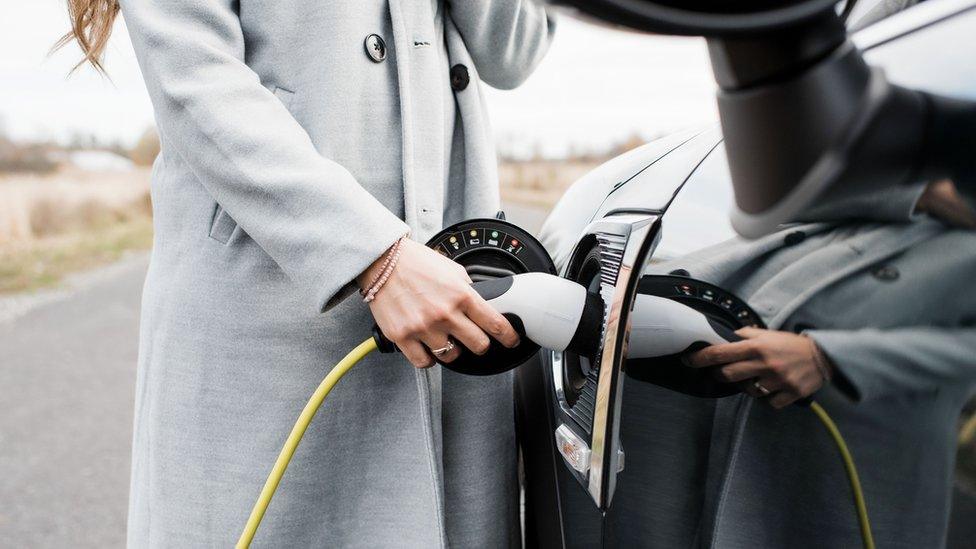Climate change: Electric taxis trialled in Denbighshire
- Published
- comments
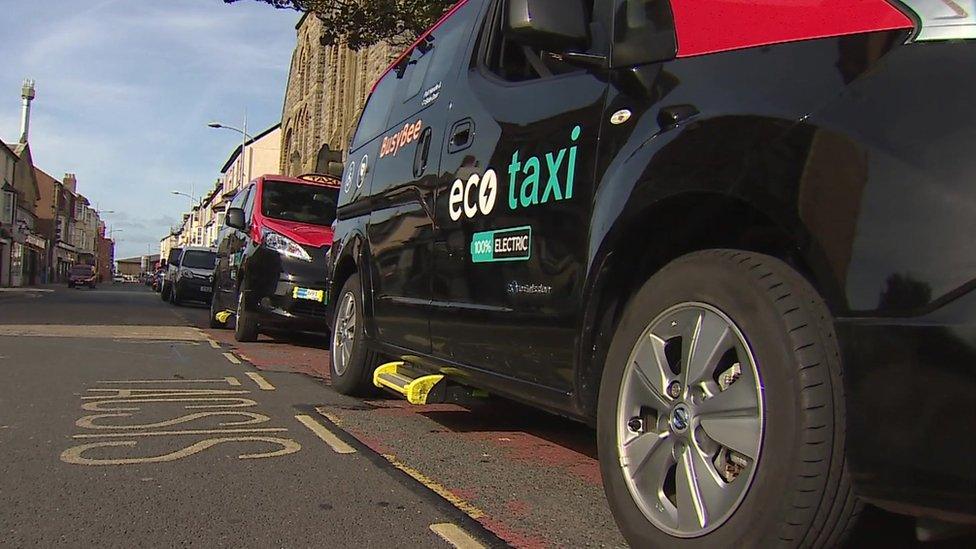
Electric taxis are being trialled in Denbighshire
Electric taxis have been rolled out in a north Wales county as part of a trial to cut carbon emissions.
The Welsh government plans to decarbonise the entire taxi fleet by 2028.
Rhyl firm Busy Bee has taken on two green vehicles, each costing £50,000.
Owner Steve Darby said although electric taxis would mean serious investment for the business, there were clear benefits, including cleaner air.
"I have lived in Rhyl most of my life and I used to cycle round town, there were never as many cars as this. It would be nice to contribute, which I hope we have," he said.
Denbighshire, like all local authorities in Wales, is working towards making the council achieve net zero carbon emissions by 2030.
Its climate strategy also includes increasing the number of electric vehicles in its own fleet, putting in more charging points and planting new woodland
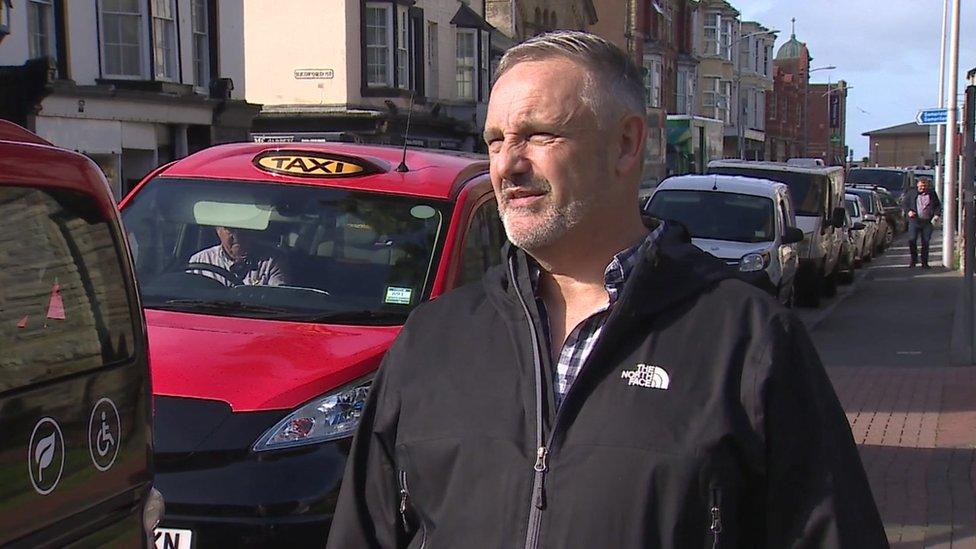
Busy Bee owner Steve Darby says cleaner air is worth the investment
The council has already set aside £9m to invest in the schemes.
Brian Jones, the council's lead member for waste, transport and the environment, said: "I think one of the best ways forward is to get residents and businesses to engage... show them the benefits."
At Ysgol Dinas Bran in Llangollen, it is the pupils who have brought about a major reduction in their school's carbon footprint.
The high school has invested almost £250,000 in solar panels, LED lighting and smarter heating.
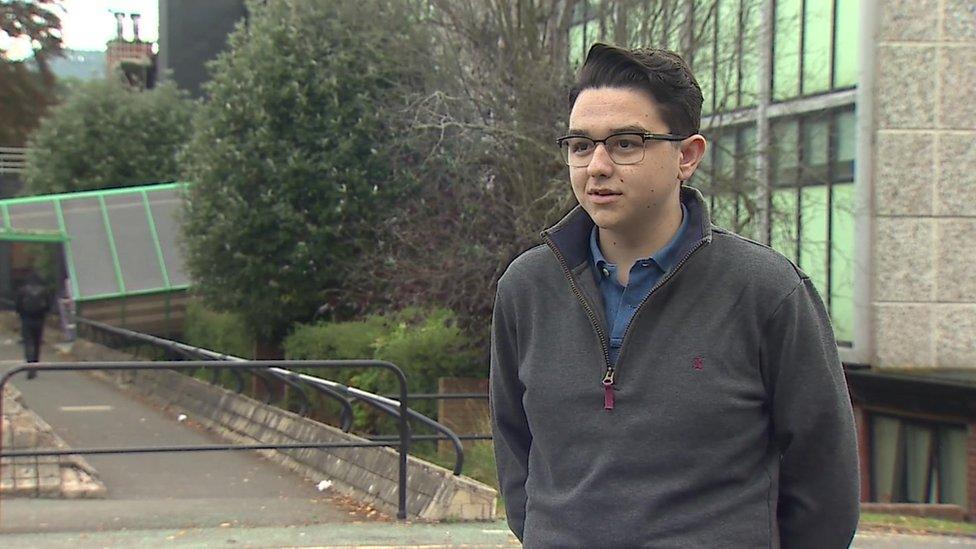
Pupil Damon Richards-Gwilliam is proud of the energy-saving action at the school
Damon Richards-Gwilliam, a Year 13 pupil, said seeing the changes made him "proud".
"It originated from us with the student council, and then we moved up through all the staff to try to get as much support as we could," he said.
The energy-saving measures mean that bills at the school will be about £30,000 a year lower.
Although the investment will take eight years to pay for itself, the benefits to the environment - and for the students - are happening now.
Deputy head teacher Chris Cheffings said it showed what could be achieved.
"What we're showing here is that if students speak loudly enough... they can make a difference. They can feel inspired by this and look into the future... it's not too late," he said.
- Published23 October 2021
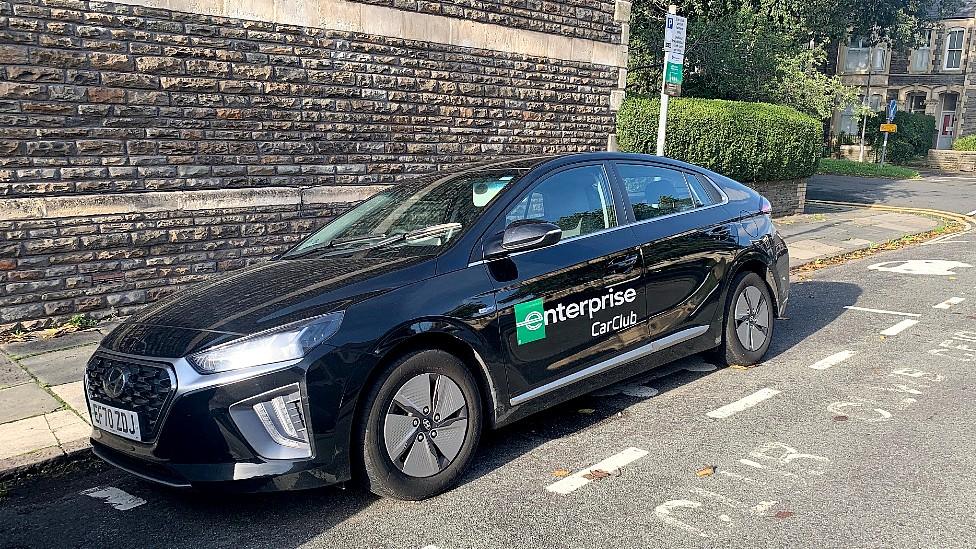
- Published24 October 2021

- Published12 May 2021
